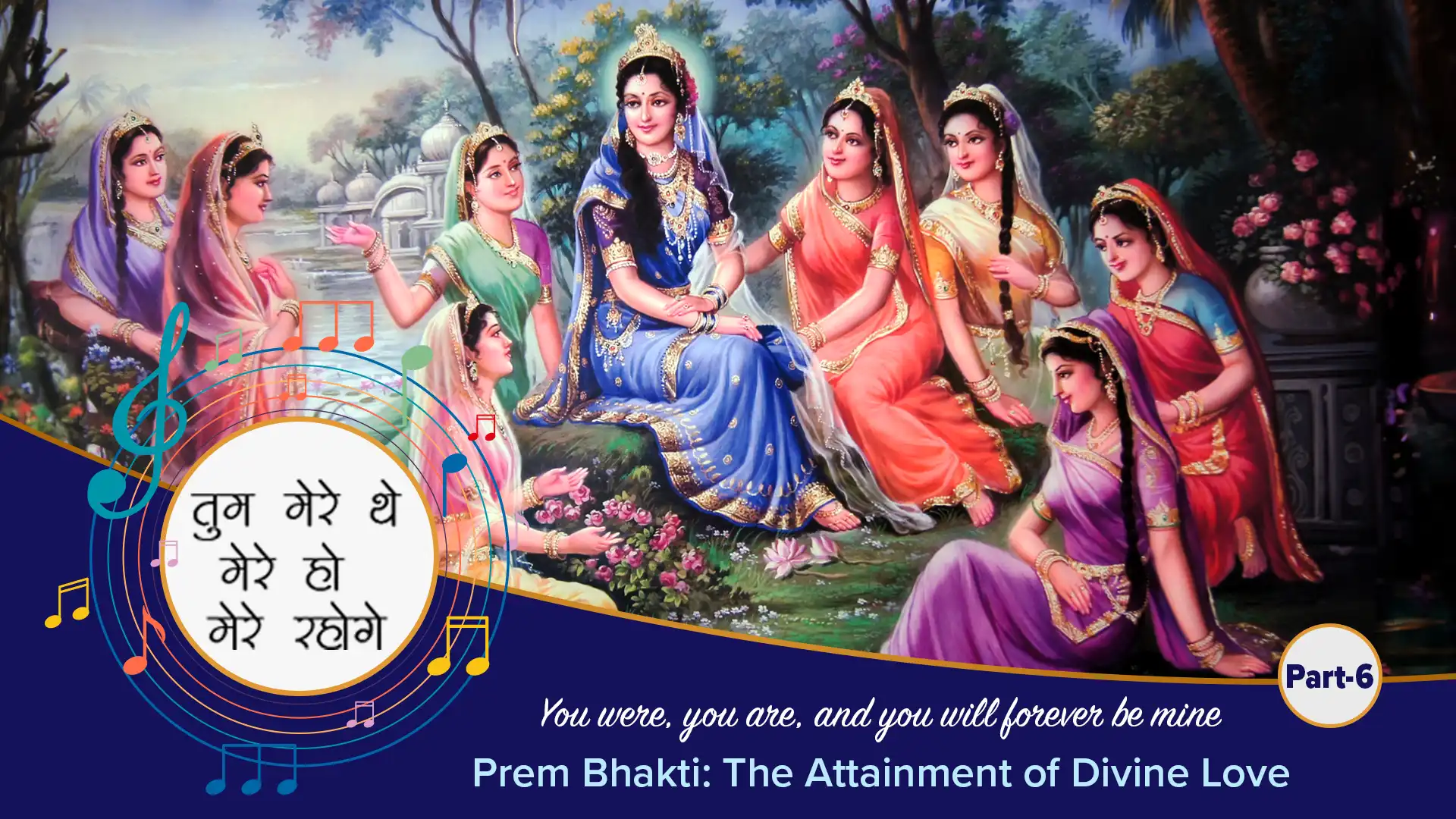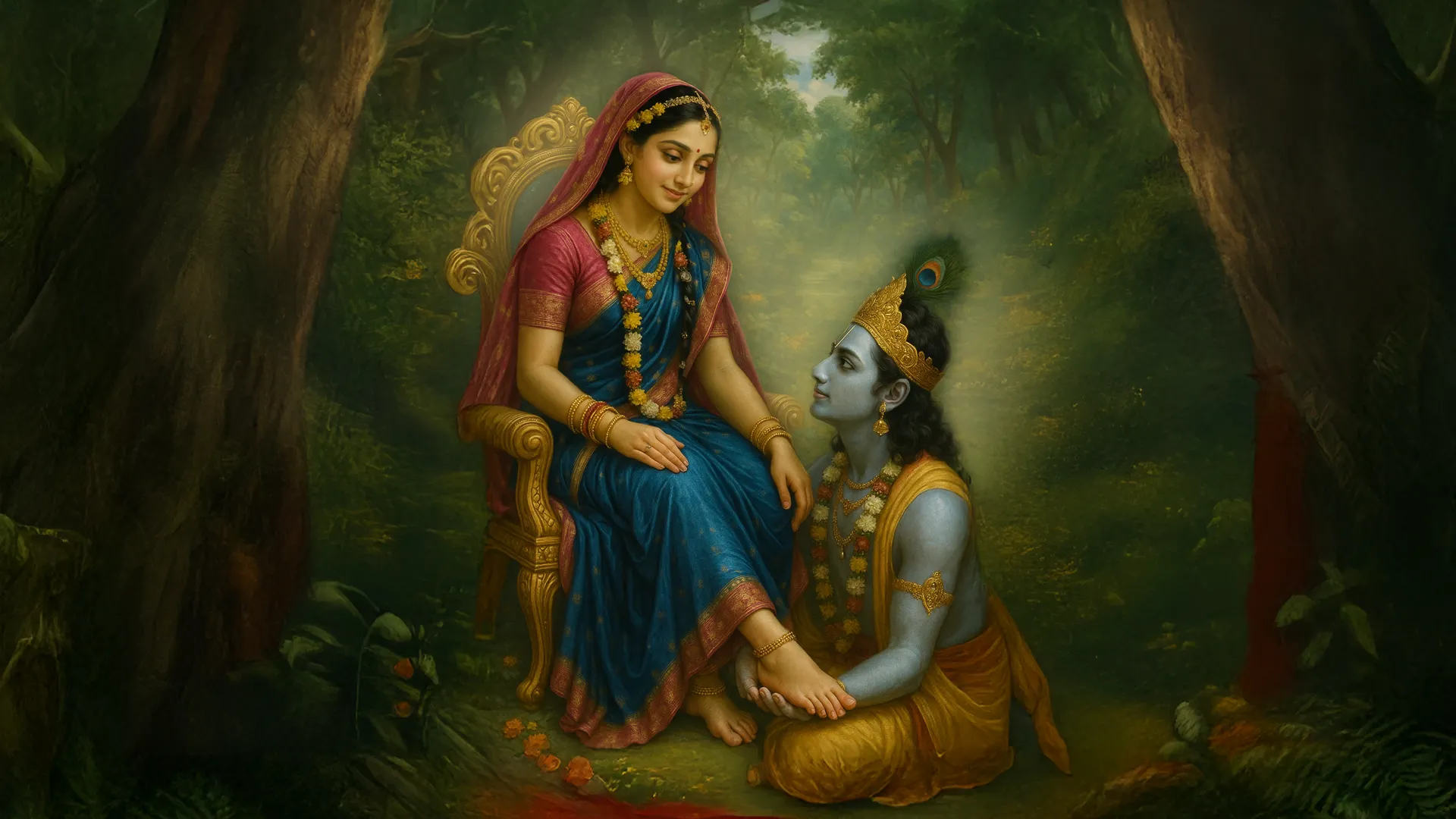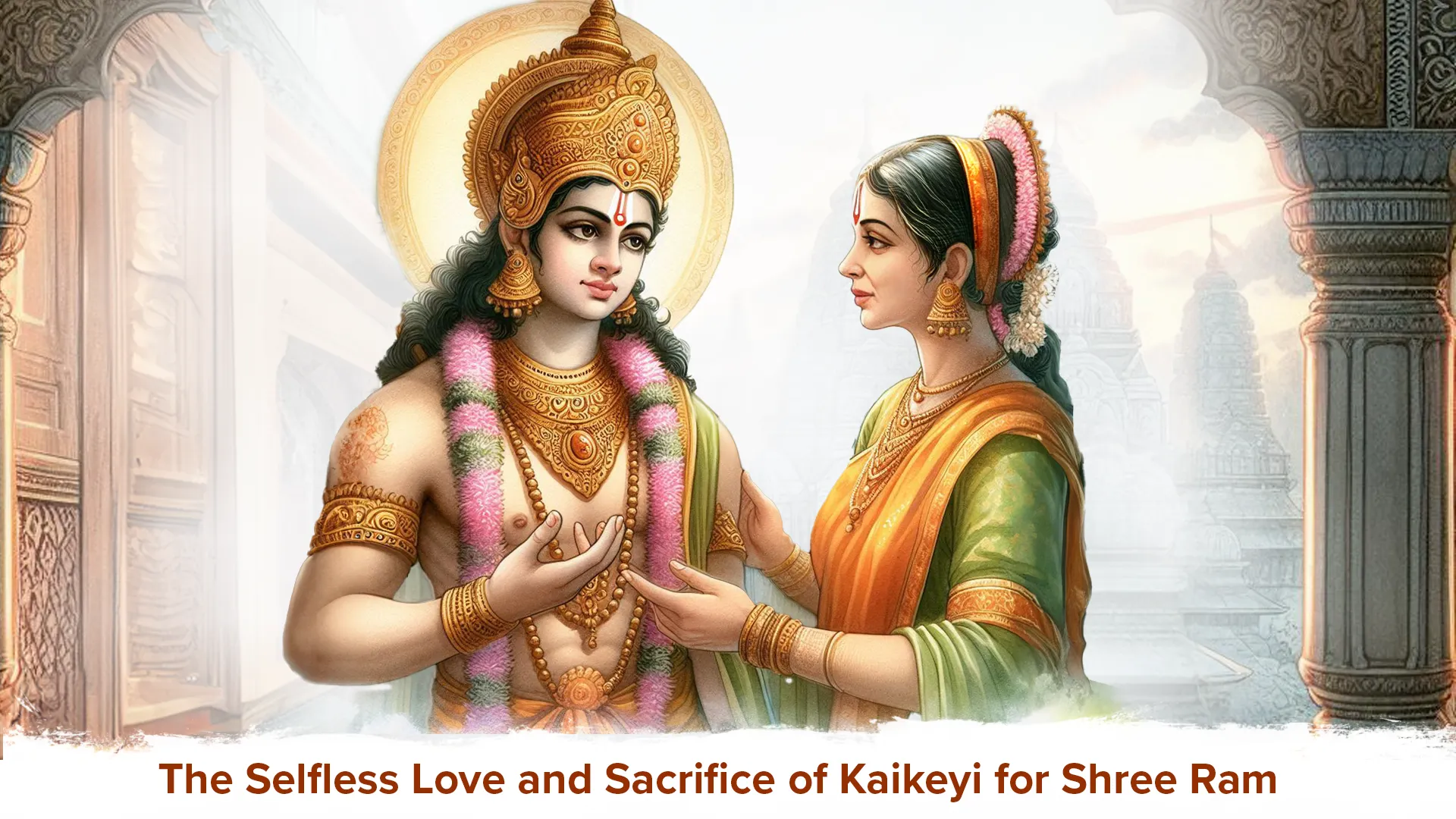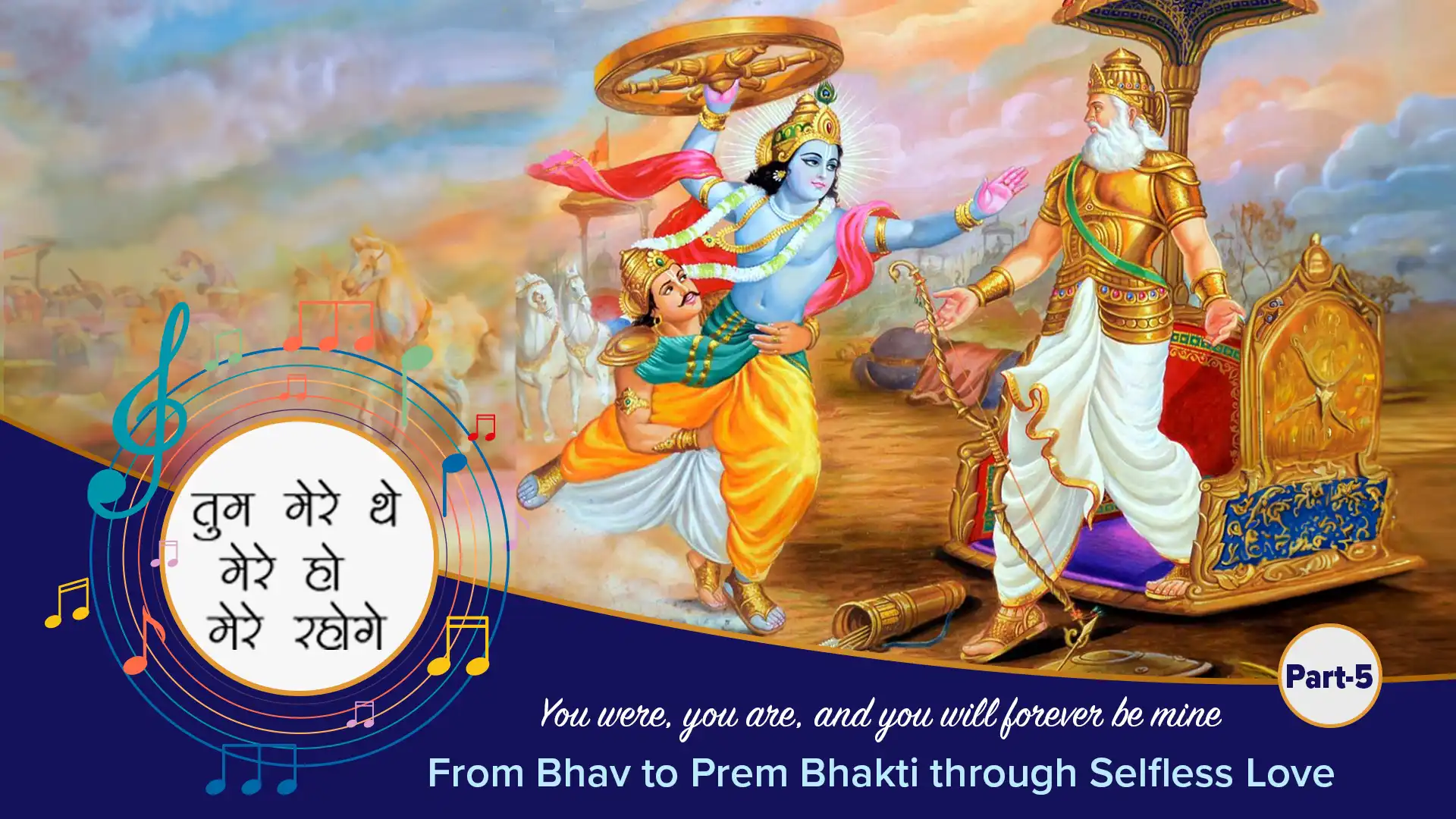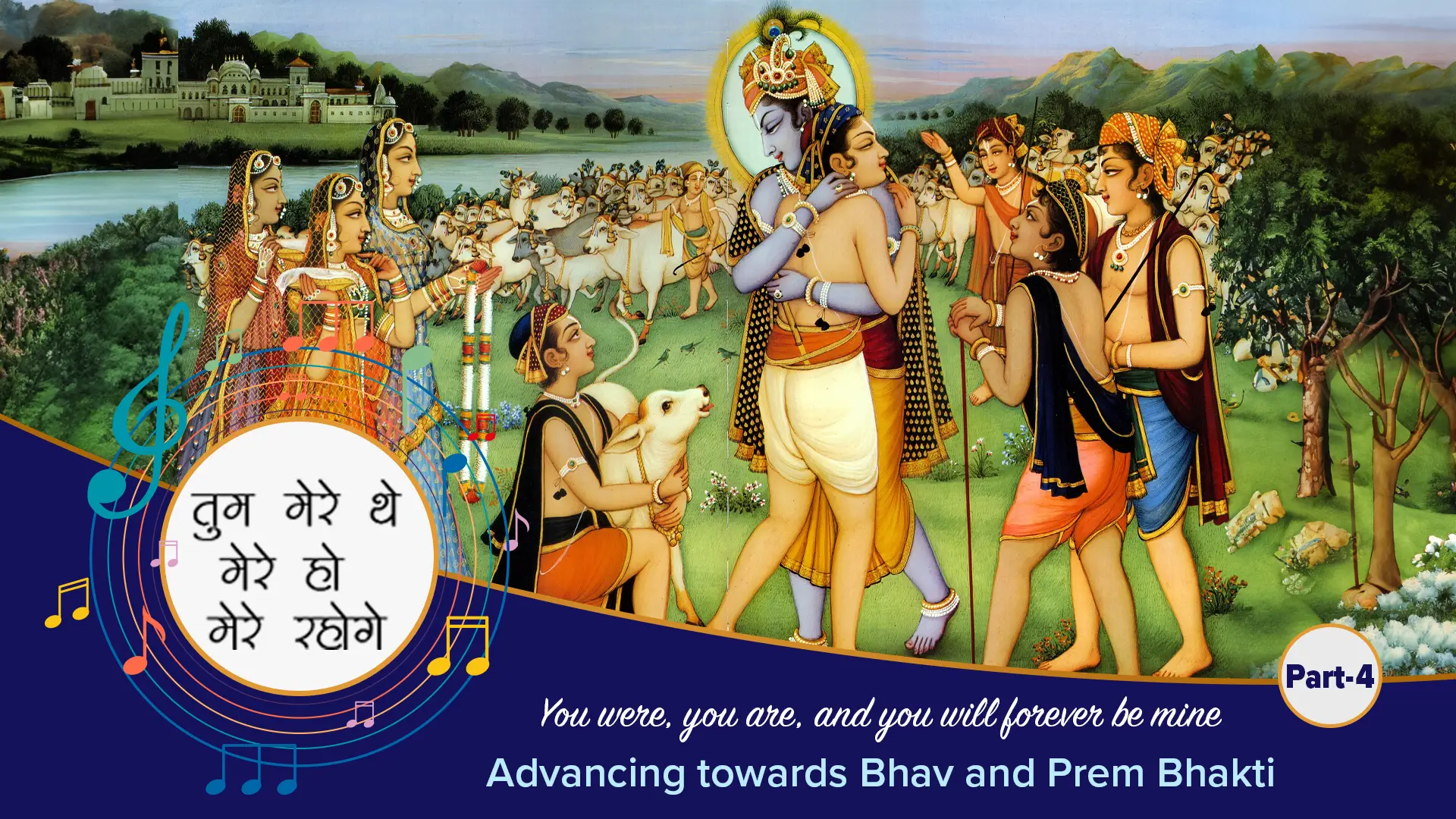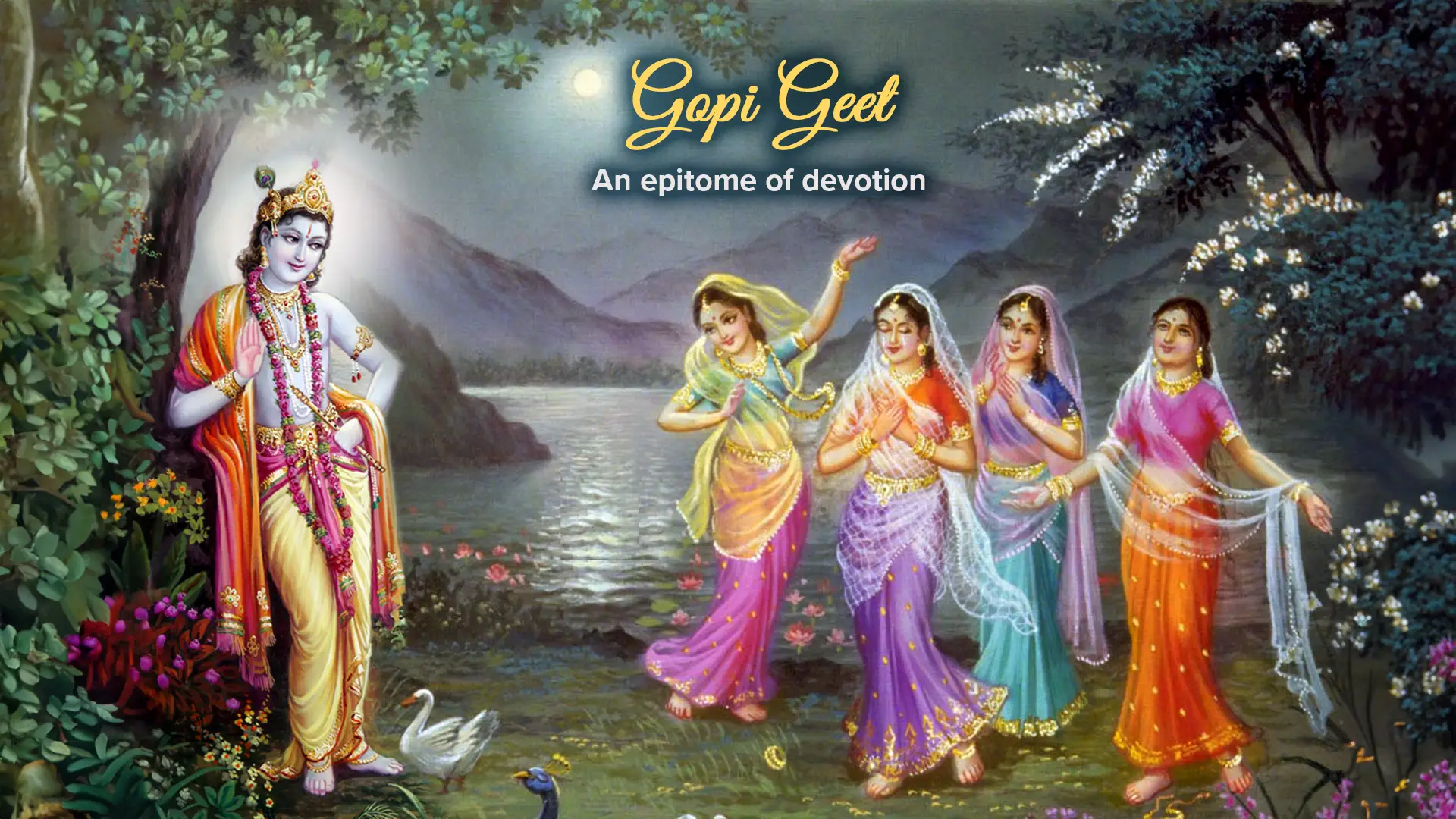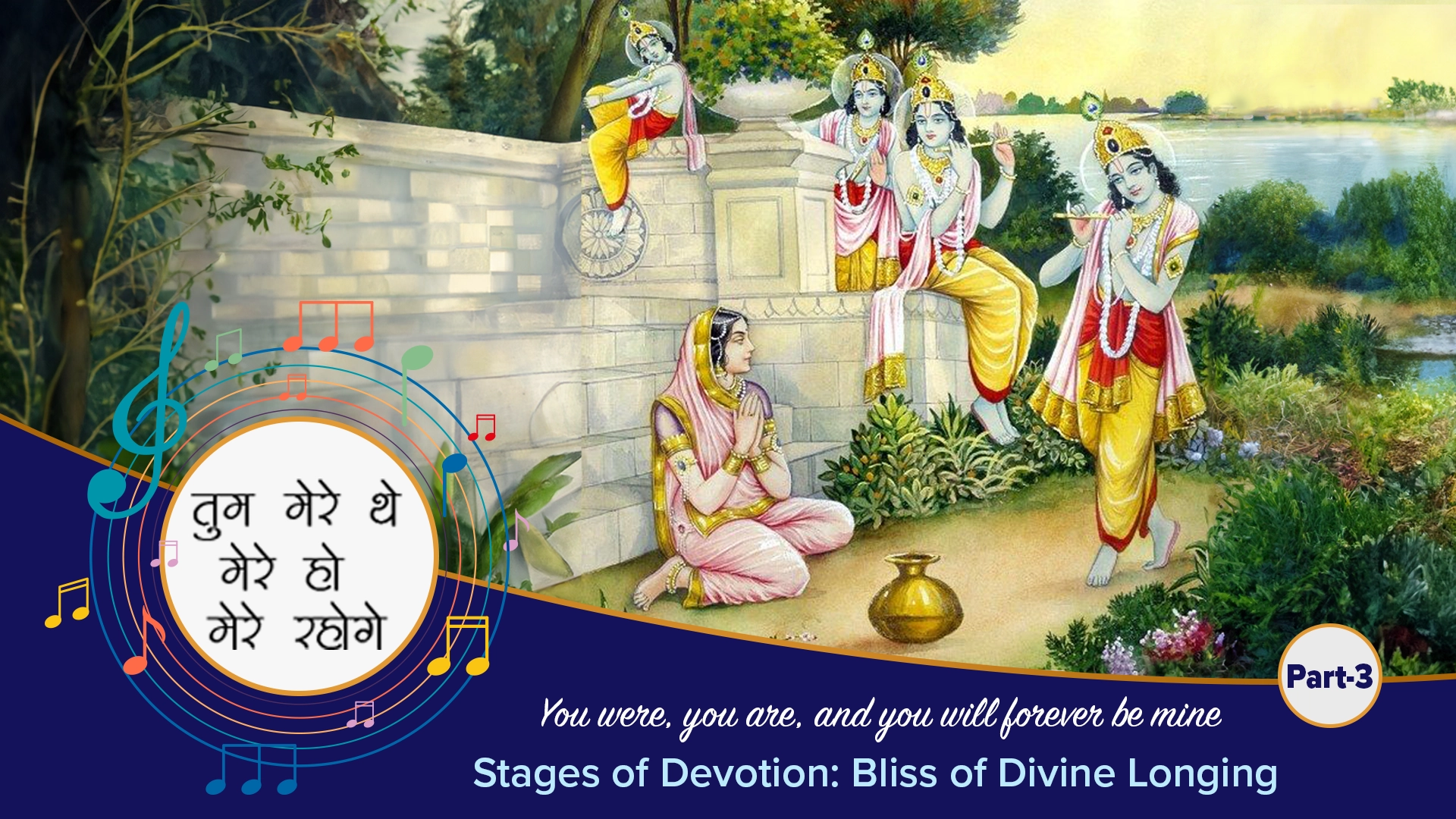After a long and tedious journey through the ocean of Maya, the devotee learns to nurture selfless love for his Beloved Lord. He achieves a state of complete self-effacement and waits for the most precious gift. Now, his pātra (पात्र/ vessel to contain divine love) is ready to receive divine love and he sings:
इक दिन प्रेम रंग लायेगा, पिय! तुम को भी तड़पायेगा ।
मैं हूँ सखी किशोरी जू की, नाता मम बरसाने से ॥
ika dina prema ranga lāyegā, piya! tuma ko bhī tarapāyegā
main hūn sakhī kishorī jū kĩ, nātā mama barasānese.
The lines translate as O my Beloved! One day, my love will show its effect and torment you because I am a Gopi of Barsana and a sakhi (close friend) of Kishoriju (Radhaji).
But what is the nature of this divine love? And how is it different from worldly love? Jagadguru Shree Kripaluji Maharaj writes in the following verses in Shyama Shyam Geet:
जगत के प्रेम को आसक्ति कहें बामा।
सच्चा प्रेम कहलाये प्रेम श्याम श्यामा।।
जगत के प्रेम का बंधन परिणामा।
नित्य सेवा परिणाम प्रेम श्याम श्यामा।।
देना देना प्रेम अरु लेना लेना कामा।
लेना देना दोनों तो है व्यापार नामा।।
jagata ke prema ko āsakti kaheṁ bāmā
sachchā prema kahalāye prema śhyāmā śhyāmā
jagata ke prema ka bandhan parināmā
Nitya seva parināmā prema śhyāmā śhyāmā
denā denā prema aru lenā lenā kāmā
lenā denā donoṁ to hai vyāpāra nāmā
The above lines mean that wordly love is nothing but a selfish attachment. True love, which is selfless and exclusive, can only be for Shyama Shyam (Radha-Krishna). While worldly love leads to bondage, the love for Shyama Shyam results in the attainment of their eternal service. To continuously give is love; to continuously take is selfish desire. The process of give and take is business.
Thus, divine love is about only ''giving and giving'' (denā denā/ देना देना). It is in giving that one receives happiness. It is in the happiness of one's Beloved that the soul experiences eternal bliss. The nature of divine love is such that when one receives it, one is completely satiated, yet the longing keeps increasing to receive more and more of it. This is the opposite of worldly love, which is about ''take and take'' (lenā lenā/ लेना लेना) or ''give and take'' (lenā denā/ लेना देना). When the condition of self-seeking is taken away, it ceases to exist. On the contrary, when the soul attains divine love, he merely wants to serve his Beloved. Such a soul is ready to forgo the bliss of Swarglok or Vaikuntha.
The soul receives divine love by the grace of God and Guru, but his urge to serve Shree Krishna in His eternal pastimes (nitya leelā/ नित्य लीला) now increases infinitely. He had engaged in selfless service during his journey as a sadhak to attain this state. Still, that service was merely a preparation for this real service of offering bliss to the Divine Couple, Shyama Shyam, in their Divine Abode. Rasik saints say that it is Radharani who can offer the utmost bliss to Krishna and make Him the happiest. Therefore, the highest seva one can attain in their Divine Abode is to serve Radharani. She alone knows how to give rasa (bliss) to Krishna. Radharani has expanded with all her creative energies to enhance further the bliss of the ashtā-mahā-sākhi (a group of eight prominent gopis and close associates of Radha-Krishna/ अष्टा-महा-साखी). It thus becomes imperative for a soul who has entered the eternal pastimes of the Lord to serve Radharani as the servant of the servant of Her servant in the dāsānudāsa (दासानुदास) bhav. This is the greatest service to Krishna and the highest manifestation of divine love.
In the pad “Sadha Yaha! Puravahu Radhey!”, Shree Kripaluji Maharaj entreats the divine Mother to endow him with service in the nitya leelas of Radha and Krishna:
साध यह पुरवहु राधे! मोर।
बनूँ तिहारी महल-टहलनी, करहु कृपा की कोर।
देउ बुहारी कुंज-महल की, होत साँझ अरु भोर ।
sādh yah puravahu rādhe! mora
mora banūñ tihārī mahala-ţahalani karahu kripā kī kora
deuñ buhārī kunja-mahala ki hota sāñjha aru bhora
Here, the soul pleads with Radharani to allow her to stay with her forever as her handmaid in her palace so that she can sweep the Kunj-mahal where the Divine Couple rests day and night. When a soul serves Krishna thus, as a servant of the servant of the divine Mother, Krishna is the happiest. Moreso, He is enslaved by the love of that soul. Such are the souls like Mother Yashoda, who tied Brahma to a mortar wheel and the Gopis, who made Krishna dance before them so that he could enjoy his favourite chhāch (buttermilk/ छाछ) prepared by them for him.
Once, the celestial gods go to meet Lord Krishna in Braja. They notice that Krishna is hiding something. They ask the Lord what he is hiding. Krishna is reluctant to show it. When the gods insist on this, he reveals to them his pot of buttermilk, which he has obtained from the Gopis. The gods ask him what is so special about buttermilk. It seems an ordinary drink to them, compared to the Amṛit (nectar/ अमृत) they have in their possession. The gods are curious and want to taste Krishna'sKrishna's buttermilk.
Refusing to share his prized possession, Krishna says with tears in his eyes, "You all do not know what value this buttermilk carries. To get this from my dear Gopis, I have to dance in front of them. Only when my beloved Gopis sees Me dancing do I get this buttermilk filled with pure love for Me."
In this kirtan, "Tum mere the mere ho mere rahoge" (You were mine, You are mine and will always be mine), Jagadguru Shree Kripaliji Maharaj charts the journey of a soul who has traversed the path of Maya, has engaged in sadhana and seva to purify his pātra and has finally attained divine love. In the verses analysed here, such a soul says that his love will torment his Beloved Lord, who will be compelled to appear before him. Hence, we understand that Divine Love not only torments Radharani, the Gopis and the eligible souls who are a part of their eternal pastimes. It also torments the Brahman Himself, who is enslaved by their pure, selfless love.

